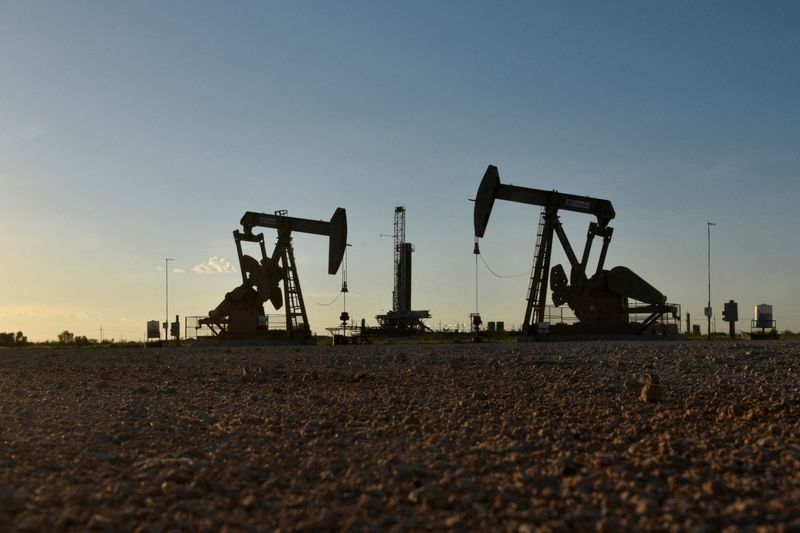By Alex Lawler and Natalie Grover
LONDON (Reuters) - The gap between two leading oil forecasters' views on 2024 demand growth widened on Thursday, with the International Energy Agency (IEA) predicting a sharper slowdown while producer group OPEC stuck to expectations for buoyant China-led growth.
The Organization of the Petroleum-Exporting Countries (OPEC) and the IEA, which represents industrialised countries, have clashed in recent years over issues such as the long-term oil demand outlook and the need for investment in new supplies.
In a monthly report on Thursday the IEA lowered its forecast for growth in oil demand in 2024 to 880,000 barrels per day from 1 million bpd, suggesting harsher global economic conditions and progress on energy efficiency will weigh on consumption.
By contrast, in its latest report OPEC stuck to its forecast that demand will rise by 2.25 million bpd in 2024. The difference between the two forecasts - 1.37 million bpd - is equivalent to more than 1% of daily world oil use.
Oil demand growth is an indication of likely oil market strength, and can affect prices and fuel costs for consumers and businesses. It also forms part of the backdrop for supply policy decisions by OPEC and its allies, known as OPEC+.
"In 2024, solid global economic growth, amid continued improvements in China, is expected to further boost oil consumption," OPEC said in a monthly report.
Both forecasters are on roughly the same page for demand this year. The IEA raised its figure for this year's growth to 2.3 million bpd, bringing it closer to OPEC's forecast of 2.44 million bpd which it left unchanged on Thursday.
DEMAND DESTRUCTION
The IEA said in its report it was seeing signs of demand being hit by rising prices and rising electric vehicle sales.
Crude rose close to $100 a barrel in September before falling on economic concerns, only to jump on Monday on concern the clashes between Israel and Palestinian Islamist group Hamas could escalate and disrupt supply.
"There has been some evidence of large-scale demand destruction, especially in lower-income countries like Nigeria, Pakistan and Egypt, and signs of accelerating declines within some OECD markets including the United States," the IEA said.
OPEC still expects oil demand in Organisation for Economic Co-operation and Development (OECD) countries to rise in 2024, while the IEA sees it entering "what is likely to be a permanent decline".

Gasoline demand, the IEA said, is expected to fall next year by 250,000 bpd in OECD countries. It cited factors including efficiencies and electric car sales weighing on driving demand.
Oil demand forecasters often have to make sizeable revisions given changes in the economic outlook and geopolitical uncertainties, which this year included China's lifting of coronavirus lockdowns and rising interest rates.